10 Best Herbal Essential Oils For Cold Sore
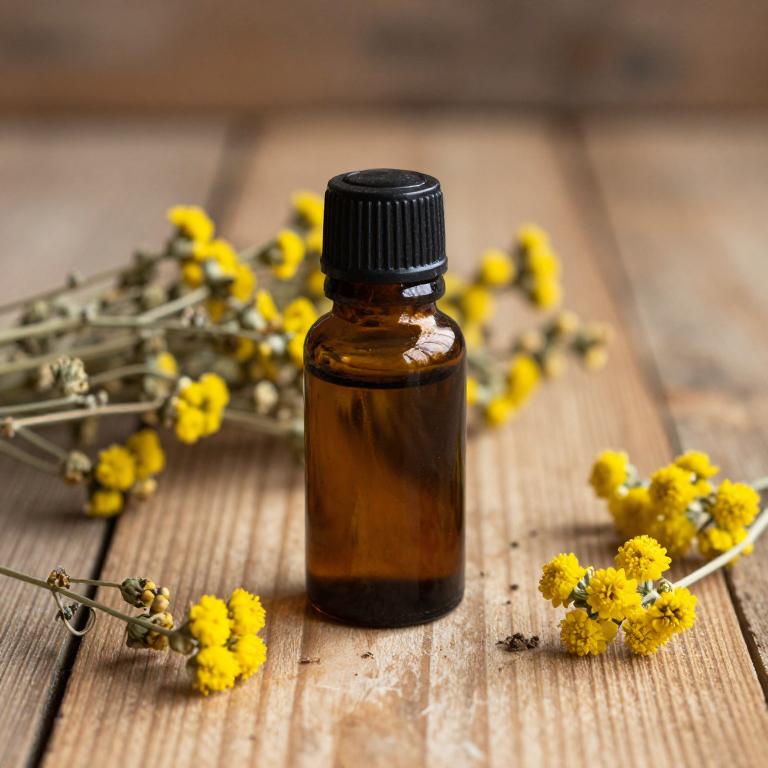
Herbal essential oils such as tea tree oil, lavender oil, and eucalyptus oil are often used for their potential antiviral and anti-inflammatory properties, which may help in managing cold sores.
These oils can be applied topically after proper dilution with a carrier oil to avoid skin irritation, as they are highly concentrated. Some studies suggest that tea tree oil may reduce the duration and severity of cold sore outbreaks due to its antimicrobial effects. However, it is important to consult a healthcare professional before using essential oils, especially for individuals with sensitive skin or existing health conditions.
While these oils may offer some relief, they should not replace medical treatments for severe or recurrent cold sores.
Table of Contents
- 1. Lemon balm (Melissa officinalis)
- 2. Ginger (Zingiber officinale)
- 3. English lavender (Lavandula angustifolia)
- 4. Yarrow (Achillea millefolium)
- 5. Echinacea (Echinacea purpurea)
- 6. Thyme (Thymus vulgaris)
- 7. Ceylon cinnamon (Cinnamomum zeylanicum)
- 8. Rosemary (Rosmarinus officinalis)
- 9. Anise (Pimpinella anisum)
- 10. Oregano (Origanum vulgare)
1. Lemon balm (Melissa officinalis)

Melissa officinalis, commonly known as lemon balm, is a herbal plant whose essential oils have been traditionally used for their calming and antiviral properties.
The essential oil of lemon balm contains compounds such as linalool and linalyl acetate, which are known for their soothing and antiseptic effects. When applied topically, lemon balm essential oil may help reduce the discomfort and duration of cold sores caused by the herpes simplex virus. It is often diluted with a carrier oil before application to avoid skin irritation.
While it is not a cure for cold sores, lemon balm essential oil can be a natural and supportive remedy in managing symptoms.
2. Ginger (Zingiber officinale)

Zingiber officinale, commonly known as ginger, contains essential oils that have been traditionally used for their anti-inflammatory and antiviral properties.
These essential oils, derived from the rhizome of the plant, may help reduce the symptoms of cold sores caused by the herpes simplex virus. The active compounds in ginger essential oils, such as gingerol and shogaol, have shown potential in inhibiting viral replication and promoting healing. When applied topically, these oils can soothe the irritated skin and reduce the duration of cold sore outbreaks.
However, it is important to dilute the essential oil properly before use to avoid skin irritation and to consult with a healthcare professional for safe application.
3. English lavender (Lavandula angustifolia)

Lavandula angustifolia, commonly known as English lavender, is widely recognized for its calming properties and therapeutic benefits, including its potential to alleviate symptoms of cold sores.
The essential oil extracted from this plant contains compounds such as linalool and linalyl acetate, which have antiviral and anti-inflammatory properties that may help reduce the duration and severity of cold sore outbreaks. When applied topically, lavender essential oil can soothe the pain and irritation associated with cold sores while promoting faster healing of the affected skin. However, it is important to dilute the oil with a carrier oil before application to prevent skin irritation.
Overall, lavender essential oil can be a valuable natural remedy for managing cold sores when used safely and consistently.
4. Yarrow (Achillea millefolium)
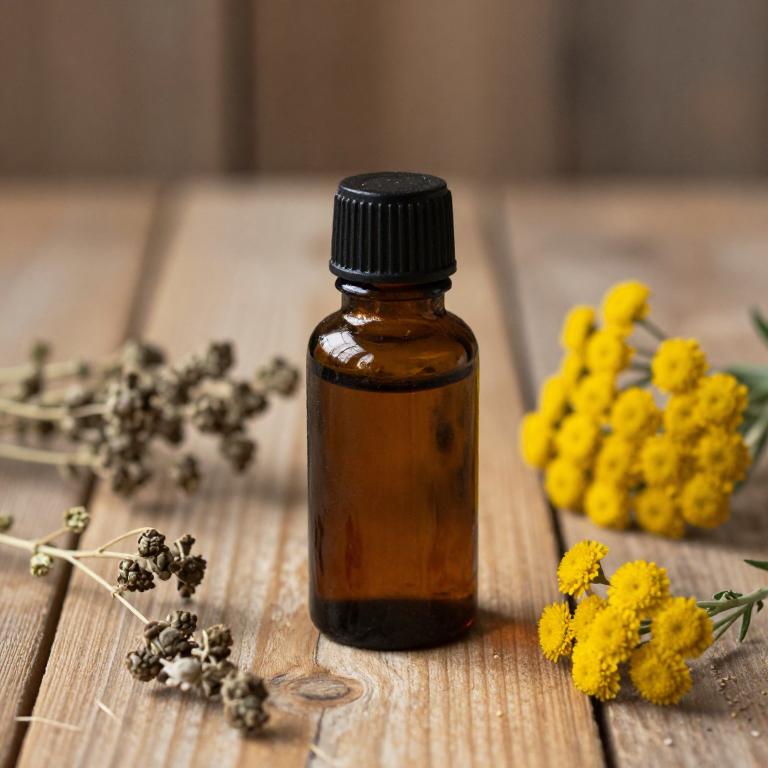
Achillea millefolium, commonly known as yarrow, contains essential oils that have been traditionally used for their anti-inflammatory and antiviral properties, making them a potential natural remedy for cold sores.
The essential oils derived from yarrow, particularly those rich in compounds like chamazulene and bisabolol, may help reduce the duration and severity of cold sore outbreaks by supporting the body's immune response. These oils can be applied topically, diluted with a carrier oil, to soothe the affected area and promote healing. While research on its specific efficacy for cold sores is limited, many users report positive results when using yarrow essential oil as part of a holistic approach to managing herpes simplex virus infections.
As with any essential oil, it is important to consult a healthcare professional before use, especially for individuals with sensitive skin or underlying health conditions.
5. Echinacea (Echinacea purpurea)
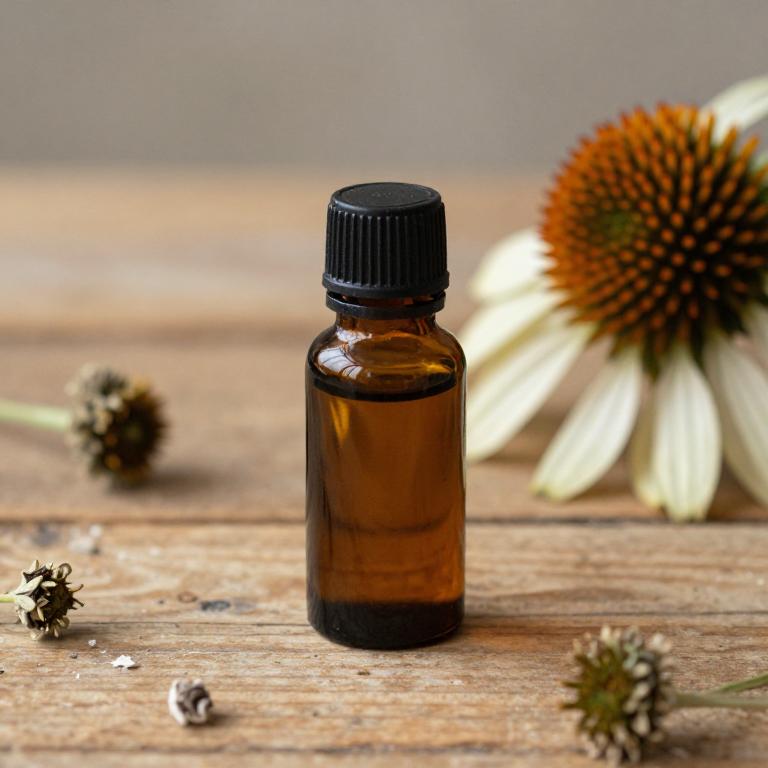
Echinacea purpurea, commonly known as purple coneflower, is a popular herbal remedy often used to support immune function and reduce the frequency and severity of cold sores.
Its essential oils, derived from the plant's flowers and leaves, contain compounds such as alkamides, flavonoids, and caffeic acid, which are believed to have antiviral and anti-inflammatory properties. These oils may help soothe the pain and inflammation associated with cold sores and potentially shorten their healing time. Some studies suggest that topical application of echinacea essential oils can inhibit the replication of the herpes simplex virus, which causes cold sores.
However, it is important to use these oils with caution, as they can be potent and may cause skin irritation in some individuals.
6. Thyme (Thymus vulgaris)

Thymus vulgaris, commonly known as thyme, is a popular herb used in aromatherapy and natural medicine for its potent essential oils.
The essential oil of thymus vulgaris contains powerful compounds like thymol and carvacrol, which have antimicrobial and antiviral properties that may help in reducing the frequency and severity of cold sores caused by the herpes simplex virus. When used topically, thyme essential oil can help soothe the blistering and inflammation associated with cold sores, promoting faster healing. However, it is important to dilute the oil with a carrier oil before applying it to the skin to avoid irritation.
While thyme essential oil may offer some relief, it should not replace professional medical advice, especially for persistent or severe outbreaks.
7. Ceylon cinnamon (Cinnamomum zeylanicum)

Cinnamomum zeylanicum, commonly known as cinnamon bark, contains essential oils that have been traditionally used for their antiviral and anti-inflammatory properties.
These oils, particularly rich in cinnamaldehyde, may help reduce the duration and severity of cold sores caused by the herpes simplex virus. When applied topically, cinnamon essential oil can soothe the pain and irritation associated with cold sores due to its antimicrobial effects. However, it is important to dilute the oil with a carrier oil before use to avoid skin irritation.
While some studies suggest its potential benefits, more research is needed to fully understand its efficacy and safety for treating cold sores.
8. Rosemary (Rosmarinus officinalis)

Rosmarinus officinalis, commonly known as rosemary, produces an essential oil that is often used for its potential benefits in treating cold sores.
This oil contains compounds like rosmarinic acid and camphor, which have antimicrobial and anti-inflammatory properties that may help reduce the duration and severity of cold sore outbreaks. When applied topically, rosemary essential oil can help soothe the skin and promote healing by improving circulation and reducing irritation. However, it is important to dilute the oil with a carrier oil before applying it to the skin to avoid irritation.
While it may offer some relief, it is not a substitute for medical treatment, and individuals with sensitive skin should perform a patch test before use.
9. Anise (Pimpinella anisum)
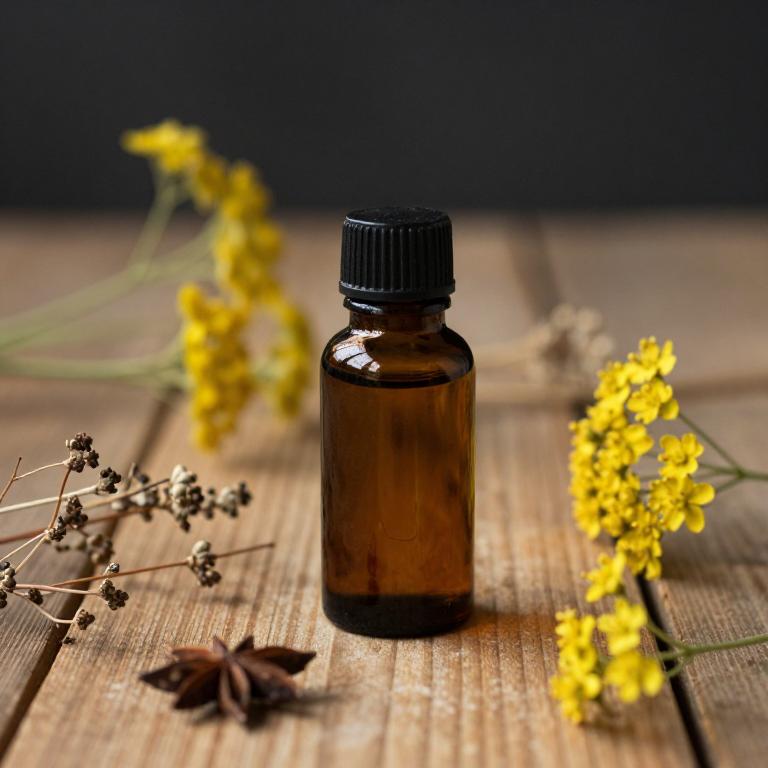
Pimpinella anisum, commonly known as anise, is a herb whose essential oil has been traditionally used for its aromatic and medicinal properties.
The essential oil of anise contains significant amounts of anethole, a compound known for its antiviral and antimicrobial effects, making it a potential natural remedy for cold sores caused by the herpes simplex virus. When applied topically, anise essential oil may help reduce the duration and severity of cold sores by inhibiting viral replication and promoting skin healing. However, it should always be diluted with a carrier oil before application to avoid skin irritation.
While preliminary studies suggest its efficacy, more research is needed to fully establish its role in the treatment of cold sores.
10. Oregano (Origanum vulgare)
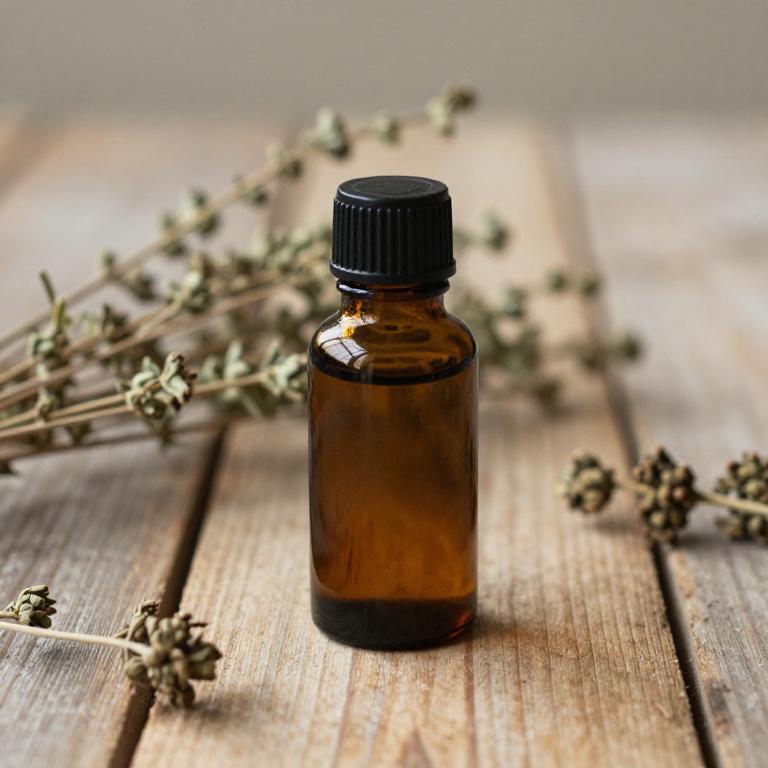
Orihanum vulgare, commonly known as oregano, is a herb widely used in traditional medicine for its potent essential oils, which contain compounds like carvacrol and thymol.
These oils have demonstrated antiviral properties, making them a promising natural remedy for cold sores caused by the herpes simplex virus. When applied topically, oregano essential oil can help reduce the duration and severity of cold sore outbreaks due to its antimicrobial and anti-inflammatory effects. However, it should be diluted with a carrier oil to avoid skin irritation and is best used as part of a holistic approach to managing cold sores.
While some studies suggest its efficacy, more research is needed to fully understand its potential in treating viral infections like herpes.